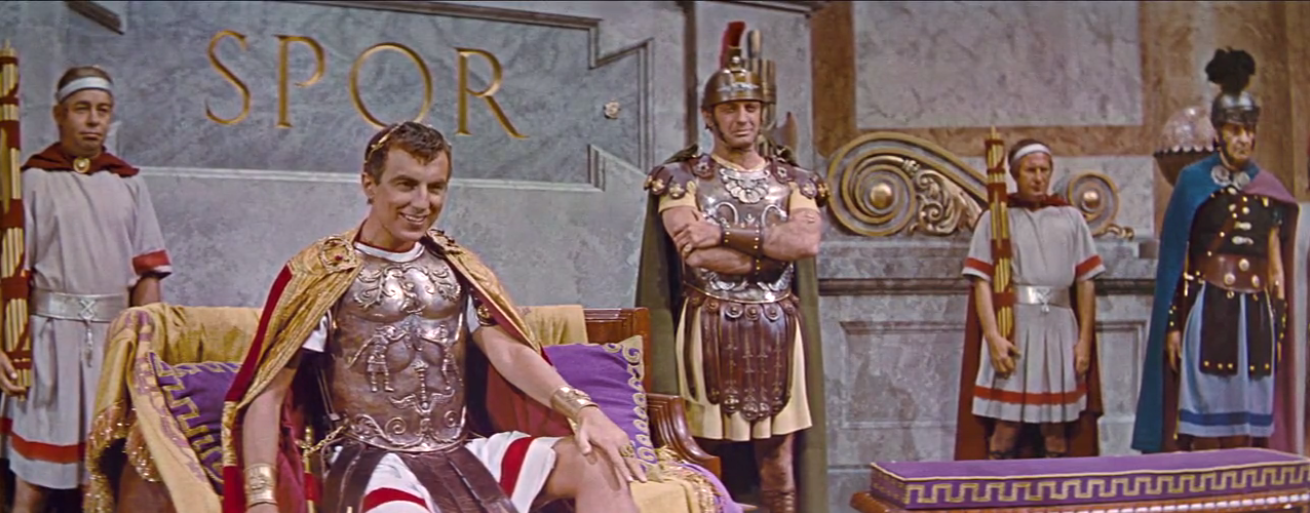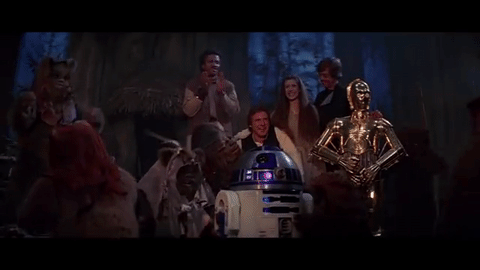The Ten Commandments (9/10)
My first viewing in five years. DeMille's picture remains one of great epics -- biblical or otherwise -- and every subsequent epic,
Ben-Hur, Spartacus, Lawrence of Arabia, Gladiator, et all -- stands on its shoulders. I reviewed it in detail after my previous screening in 2019, and still stand by everything I had to say at the time:
viewtopic.php?t=1924&start=3555
Exodus: Gods and Kings (7/10)
I thought I'd revisit this and assess it in comparison to DeMille's effort. There are a lot of strong elements at work in this movie, chief among them its visuals.
Exodus: Gods and Kings does look extraordinary, from the capacious sets to the exquisite costuming to the gorgeous lighting and Scott's unparallelled eye for staging, movement, etc.
I've honestly felt that Scott's visual style has been stuck in a bit of rut for about two decades -- at least as far as his approach to historic subjects;
Kingdom and Heaven, Robin Hood and
Napoleon have moments that look almost interchangeable. Not so much in
Exodus: Gods and Kings. The imagery in this movie really "pops" at times, and has a freshness which is missing from a lot of Scott's other "costume pieces". Complimenting this is Alberto Iglesias' lush, melodic score, which is the best score written for a Ridley Scott picture since
1492 (except for the few moments that sound like Hans Zimmer -- apparently Harry Gregson-Williams composed some additional music, and is likely the reason for the "Zimmerisms").
Unlike
The Ten Commandments, which was very stylized,
Exodus: Gods and Kings goes for a much-more naturalistic approach to the drama. It's not an invalid approach, but the problem is Scott goes too far in the "naturalistic" direction. Moses was a larger-than-life figure -- and in 1956 Charlton Heston appropriately played the role with the bearing of benevolent power and authority (whether an Egyptian prince, exiled shepherd or Holy Deliverer). I really like Christian Bale as an actor, but he (with Scott's evident blessing) plays Moses as "a regular guy", and that just doesn't cut it for one of the great leaders in ancient history. I watch Bale's performance and feel like I'm looking at the fellow who mans the counter where I service my car.
Further, Scott tells the story of Moses as if there may have been no divine intervention whatsoever. Scott is a self-confessed agnostic -- which is fair enough -- but whether or not one believes in God, the parting of the Red Sea, etc., removing God from the story makes for a very boring take on the material. The plagues afflicting Egypt have a "rational" explanation, and even the crossing of the Red Sea is depicted as a stroke of luck enabled by a convenient tsunami. But is the idea of tsunami occurring at just the right moment any less plausible than God miraculously intervening?
The biggest problem by far in this movie is the way Scott's depicts God as little boy, which is just ridiculous. I'm not sure what Scott was trying to say with this casting decision -- and maybe he wasn't trying to say anything, he was just "trying something different". But it was a silly idea and seriously compromises the movie.
Apart from this, the film's dramatic tension gets a little slack in places as well. That said, the final half hour of this film -- as Pharaoh's army charges forth in pursuit of the Israelites, culminating in the Red Sea crossing -- is truly
incredible, and some of Scott's best work. The ending of the film is also quite touching. One wishes that everything leading up to all this was as dramatically potent.
I'll always be a huge Ridley Scott fan, and pretty-much every one of his movies is worth watching for the visuals (and are amazing tutorials for any filmmaker). But this is one of his most frustrating pictures, because it has so much going for it, and could have been fixed with a few alterations (tighten up the pacing, get rid or that annoying kid and replace him with a disembodied "heavenly light" and voice-over from Alan Rickman or the like).

